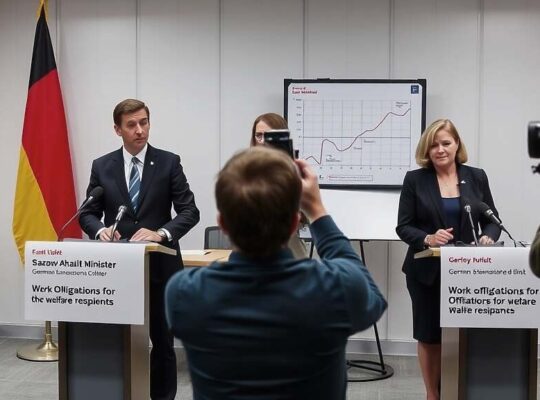German employers are pushing for radical cuts to Germany’s statutory health insurance system, proposing measures that could save up to €50 billion annually, according to calculations by “Frankfurter Allgemeine Zeitung” (FAZ). The proposals, outlined in a yet-to-be-released position paper by the Association of German Employer Associations (BDA), are poised to ignite a fierce political debate ahead of planned health insurance reforms.
The most contentious proposal centers around ending the current system of family insurance, where spouses with little or no income are automatically covered under their partner’s health insurance. The BDA wants these individuals to pay a minimum contribution of approximately €220 per month, generating an estimated €2.8 billion in additional revenue for health funds annually. This represents a significant departure from the existing framework and is expected to draw considerable opposition from labor unions and social welfare groups.
Beyond ending spousal coverage, employers are also advocating for a revived form of patient co-payments, effectively reinstating a version of the abolished ‘practice fee’ of €10. Now proposed as a “contact fee” charged for “every” doctor’s visit rather than just quarterly, the measure aims, according to the BDA, to curb unnecessary consultations and better manage patient utilization. The potential savings from this expanded patient self-participation are estimated at up to €3 billion annually.
Furthermore, the BDA is calling for a reduction in the value-added tax (VAT) on pharmaceuticals and medical devices from the current rate to 7%, potentially freeing up €5.3 billion. They argue that the existing higher VAT on medication is disproportionate when compared to rates applied to other consumer goods. To enhance transparency and accountability, employers are also proposing a compulsory “patient receipt” for every healthcare service received, automatically integrated into electronic patient records.
In an optimistic scenario, the combined effect of these and other proposals could lead to a reduction in annual health insurance expenditures by up to 10%, potentially lowering contribution rates by 1.5 to 2 percentage points. This would see employers and employees paying between 15.5 and 16 percent of their salaries towards health insurance, a significant decrease from the current average of 17.5 percent.
BDA President Rainer Dulger argued that the problem isn’t a lack of funding, but rather a mismanagement of resources. He highlighted the ongoing efforts of the “Finance Commission Health” spearheaded by Health Minister Nina Warken, which is tasked with formulating reform proposals by March 2026.
However, critics are likely to frame these proposals as a cynical attempt by employers to shift the financial burden of healthcare onto individuals and families, while simultaneously reducing their own contribution costs. The debate underscores the inherent tensions within the German healthcare system, a cornerstone of the country’s social welfare model and sets the stage for potentially divisive political clashes as planned reforms are implemented. The proposed changes also raise broader questions regarding the principle of solidarity within the system and the balance between cost containment and equitable access to care.












